News and Announcements
CSER Writer-in-Residence Marie Myung-Ok Lee was recently elected as VP of Diversity, Equity, and Inclusion at the National Book Critics Circle! See more here.

CSER’s Mae Ngai was featured in a HuffPost article called “Trump’s Brutal Immigration Agenda Has No Precedent,” published on April 30, 2025. Read it here!

CSER professor Ed Morales recently published an article in The Nation titled “How New York Can Help End the Global Debt Crisis.” The piece is a Q&A with Joseph Stiglitz and Martin Guzman, two economics professors at SIPA, about a proposed NYS law to reform policies about sovereign debt in the Global South. Read it here!
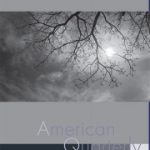
CSER’s Professor Carlos Alonso Nugent co-edited a “Forum” in the latest issue of American Quarterly, “Solidarity in Incommensurability: Ethnic Studies and the Environmental Humanities” (77.1). With an introduction co-written by Professor Nugent and Michelle N. Huang, as well as five other essays, the “Forum” spans pages 133-188. Read it here!
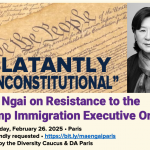
Mae Ngai gave a talk on the Trump administration’s agenda on birthright citizenship and mass deportation to the Paris chapter of Democrats Abroad on Feb 26.
CSER’s Mae Ngai was interviewed on Background Briefing, a nationally syndicated radio show, on the unfolding events in the Trump administration.

CSER’s Mae Ngai was featured in a segment by Democracy Now! on birthright citizenship.
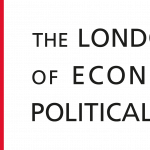
Professor Mae Ngai published a piece called “Trump’s executive order to curtail birthright citizenship is part of the long history of ‘alien citizenship’ in the US” in the London School of Economics and Political Science blog.

CSER’s Professor Mae Ngai participated in a global webinar on Trump’s inauguration and America’s future, sponsored by the Center for the Study of Politics and Governance at the University of Minnesota.
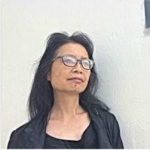
CSER’s Marie Myung-Ok Lee published an article in The New York Times titled “My K-Drama Pilgrimage.” Read it here.

Professor Mae Ngai published an article in The Atlantic titled “A New Bracero Program is Not the Solution.” Read it here.

Interested in Ethnic & Race Studies and/or podcast production? We encourage you to apply to “In Color”, the newly minted in-house CSER Audio Programme. “In Color” is committed to providing a student-led space dedicated to amplifying discourse and concepts cultivated within the field of Race & Ethnic Studies. With a focus on showcasing the significance of ethnic and race studies in navigating the complexities of our world, our podcast marries the distinct perspectives of current CSER students with the center’s curriculum insights and professorial guest speakers. We are looking for passionate and motivated individuals to join our team and help in the creation of this new space in our vibrant CSER community. If you are interested in podcast production, building professional connections and marketing skills, or engaging in dialogue and research around critical and contemporary issues in the world of ethnicity and race, we warmly invite you to apply to join our team! Applications are due January 15th, and are open to all!

Established within the Center for the Study of Ethnicity and Race (CSER), this journal is a unique space for academic and creative work directly related to the intersection of several axes of identity—namely race, ethnicity, sex, class, and ability. Open to students both undergraduate and graduate, this journal rejects the rigid boundaries of traditional scholarship and welcomes the interdisciplinary creations of the larger Columbia/Barnard community. Our desire to anchor Ethnicity and Race scholarship—and the students who conduct it—as essential to the fabric of Columbia University.
Submissions are now open for Roots’ 2nd issue, themed “Borderlands.” Our submission window is open from 20 November 2024 to 20 January 2025, 11:59 p.m. EST.
We invite undergraduate/graduate students to think through the Borderlands with Roots. What happens to our bodies/minds/scholarship/language/etc. when bisected by a border? Drawing from the words of poet-scholar-activist Gloria Anzaldúa, we approach the Borderlands as “physically present wherever two or more cultures edge each other, where people of different races occupy the same territory, where under, lower, middle and upper classes touch, where the space between two individuals shrinks with intimacy.” To explore these overlaps, Roots is seeking academic and creative output of any and all disciplines (inter- and trans-disciplinary modes), with an emphasis on the study of ethnicity & race.
“To survive the Borderlands
you must live sin fronteras [without borders]
Be a crossroads.”
– Gloria Anzaldúa, Borderlands/La Frontera: The New Mestiza
Keywords: mutation; transgression; malleability; interdisciplinary; “a new consciousness” (Anzaldúa, Borderlands/La Frontera, 80); cross-genre, trans-genre, transcending names, labels, categories; existing in the -ish; “hyphenated American;” gender; magical realism; nation-state; borders; sovereignty; transnational; trans*; identity; indigeneity; form and content; the page as a border; the personal and/as the political.
Visual Art includes photography, drawing, painting, printmaking, sculpture, video (website only), etc. Maximum Submission: 5 respective works.
Academic Writing includes essays, interviews, ethnographies, etc. Submission Length: 1,000-4,000 words total. Includes multiple submissions.
Creative Writing includes poetry, prose, personal essays, fiction, plays, etc. Submission Length: 1-5 poems or 1,000-4,000 words total. Includes multiple submissions.
Again, submissions are due January 20, 2025. We encourage you to submit finished works as soon as possible. Applicants will be notified of their submission status via email. Submissions will be reviewed blindly by journal editors and selected for publication in either our physical journal and website (in full or excerpted), or website only.
Please direct submission questions to cserjournal@gmail.com.
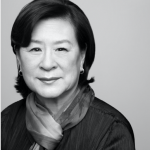
Professor Mae Ngai was recently featured on 60 Minutes Overtime and MSNBC in a segment called, “The blueprint of Trumpʻs deportation plan: A questionable approach by Eisenhower.” Professor Ngai spoke about Donald Trump’s plans to use Pres. Eisenhower’s mass deportations in the 1950s as a model for deporting millions now.
.


Marie Myung-Ok Lee, Writer in Residence at CSER, recently published a piece in Salon.com called “Like Tim Walz, we were also wrongly accused of abusing our special needs son.” Click here to read.


Mae Ngai’s new book, Corky Lee’s Asian America: Fifty Years of Photographic Justice (coedited with Chee Wang Ng), was reviewed in the New York Times, the New Yorker, the San Francisco Chronicle, and the PBS-News Hour.
Ngai also discussed the book in several interviews and podcasts, including They Call Us Bruce.
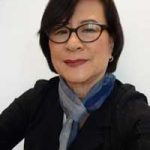
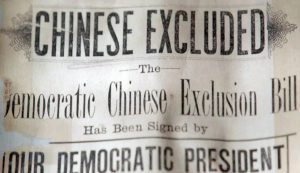
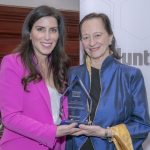
On March 8th, 2024, International Women’s Day, Professor Elsa Stamatopoulou, Director of ISHR’s Indigenous Peoples’ Rights Program, was granted a Lifetime Achievement Award by the New York City Bar Association, on the occasion of the 5th International Law Conference on the Status of Women.
The award, established in 2020, recognizes women and women-centric organizations focusing on justice work. The International Law Conference dealt with the current status of women and highlights the role of judges, lawyers, human rights experts and policy advocates working to improve the status of women and girls by enforcing their legal rights through accountability and improving their economic opportunities to support themselves and their families.
Before joining Columbia University in 2011, Elsa spent 23 years working on human rights issues at the United Nations, in addition to seven years as the first Chief of the Secretariat of the United Nations Permanent Forum on Indigenous Issues starting in 2003.

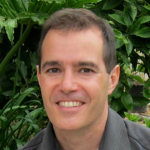
Karl Jacoby, Allan Nevins Professor of American History – Department of History, was named as a recipient of the 2024 Lenfest Distinguished Faculty Award for his deep commitment to teaching and mentoring, his curricular advancements in areas such as the history of the borderlands, Indigenous peoples, ethnicity and racialization, and the environment, and his role in strengthening the Center for the Study of Ethnicity and Race as its co-director. The annual awards, established by former University Trustee Gerry Lenfest, recognize faculty excellence across the Arts and Sciences.
Read more

